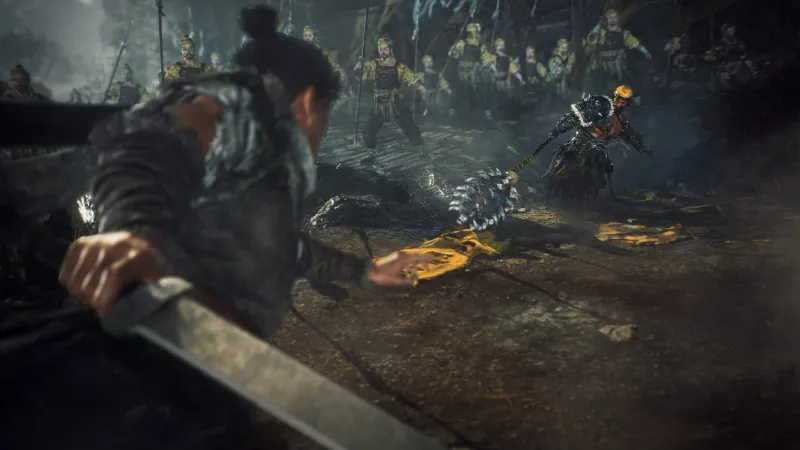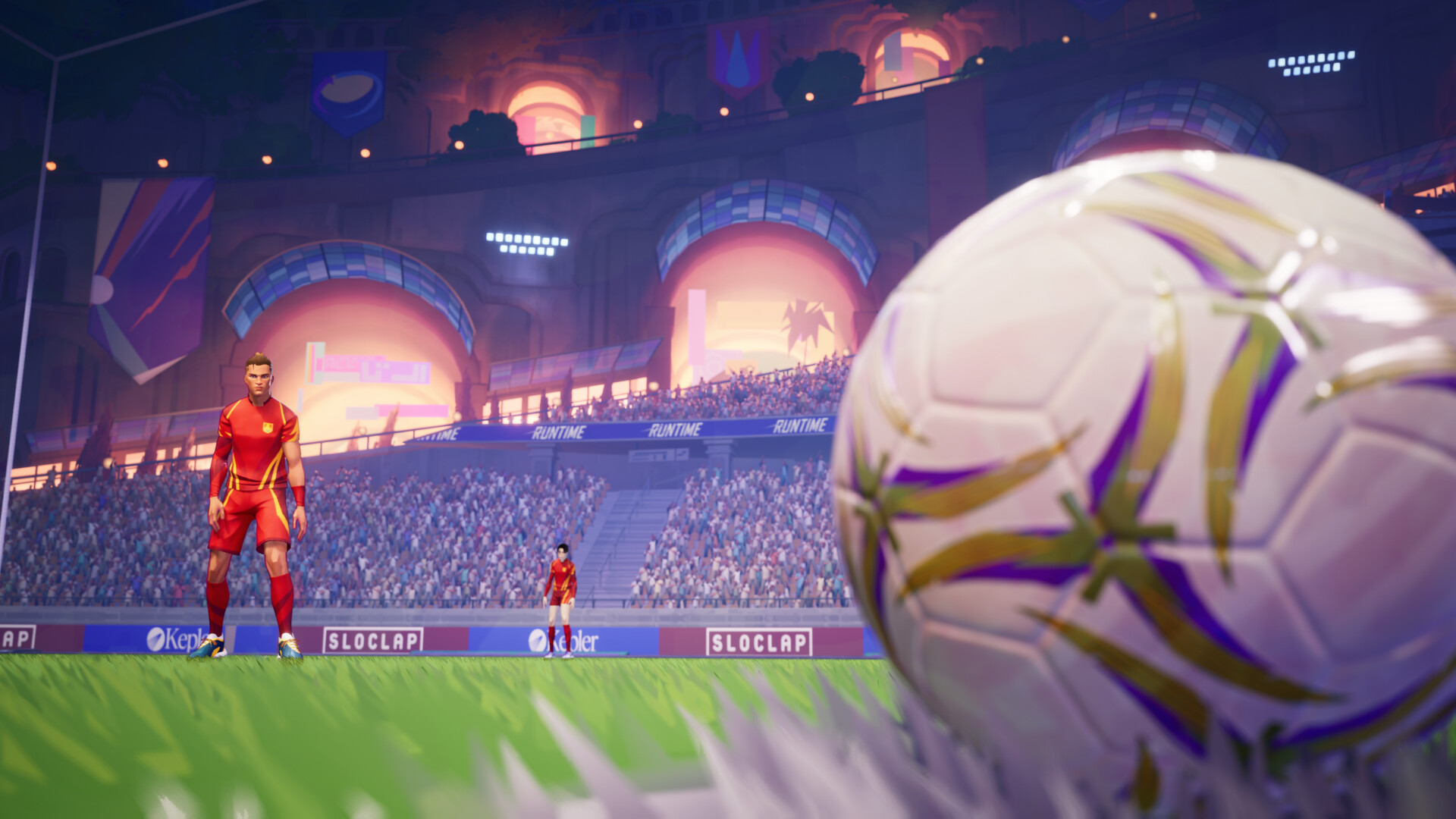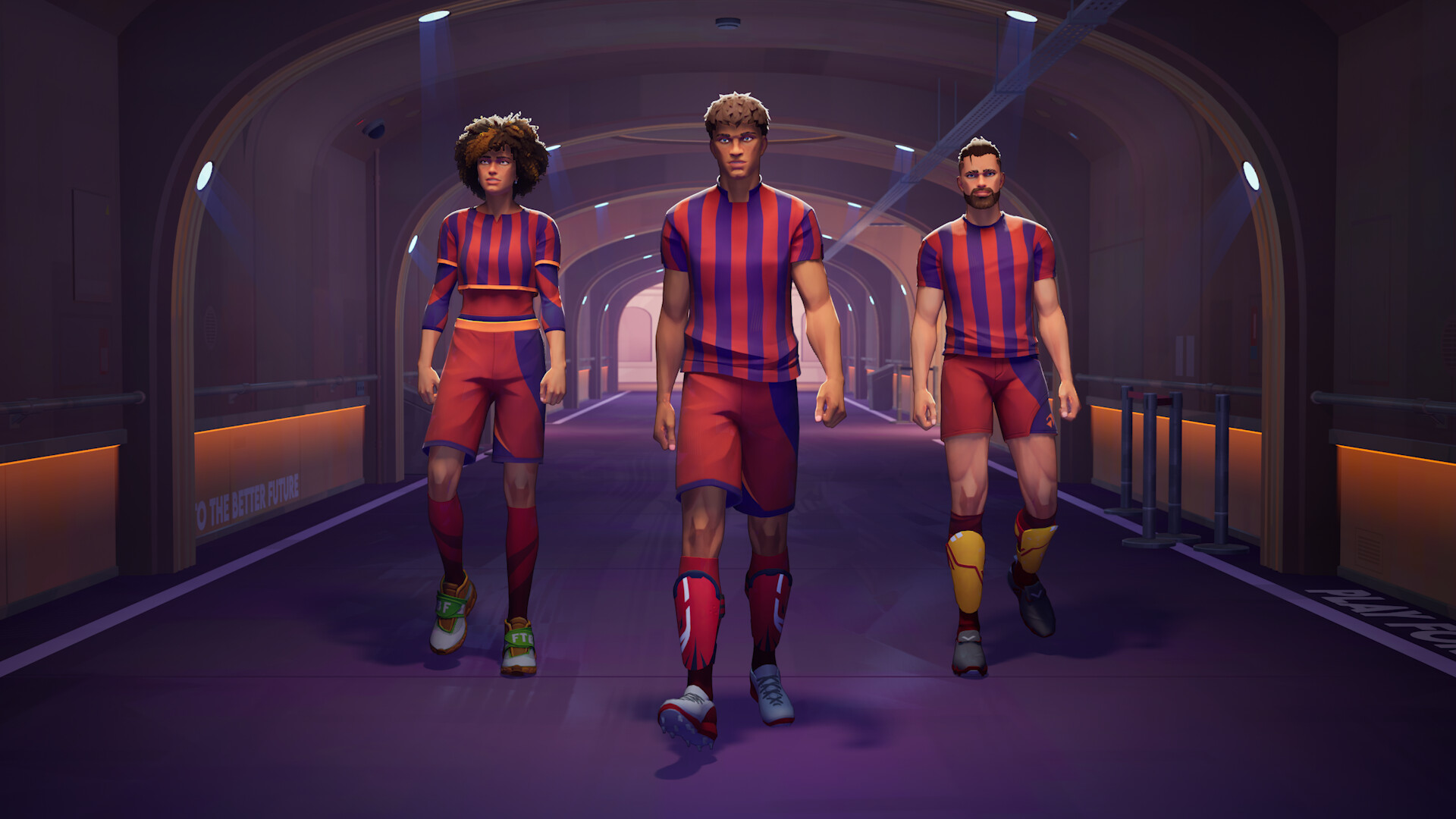
Platform: PlayStation 5, Xbox Series X/S, PlayStation 4, Xbox One, PC Publisher: Koei Tecmo Developer: Team Ninja Release: March 3, 2023 Wo Long: Fallen Dynasty’s public demo gave players a chance to experience a more general idea of what this fast-paced action game offers, but Koei Tecmo recently gave us the chance to go deeper and play through the first two chapters in Wo Long in full. I’m starting to understand that developer Team Ninja is aiming for a wider swath of players with Wo Long as opposed to its Nioh titles, which are some of the most demanding in games. While Wo Long still features that trademark From Software-inspired challenge, it also features a unique system that allows you to change an enemy’s difficulty in real-time, making it much more approachable. At the core of everything in Wo Long is its unique morale system that rises as you defeat enemies and decreases when you take damage. Take enough damage, and you can drop a full rank. You restore your morale by defeating the enemy that took you out, which feels like collecting souls after death in Dark Souls, and I love its implementation here. In Chapter two, a mini-boss with a morale rank of 20 killed me while my morale was at 17. The higher an enemy’s morale, the harder it is to defeat, but uniquely, defeating enemies in the immediate surrounding can often lower an enemy’s rank. Plus, even though I began this section around morale rank 13, by defeating each enemy on the way to the mini-boss, I got back to 17. What’s interesting here is the push and pull between the urge to quickly rush to this mini-boss at a lower rank to obtain the morale and experience I lost, and the desire to take it slow, build my morale by defeating enemies along the way, and challenge the boss with higher morale. However, in doing this, I risk dying to one of the dozen enemies along the way. I like deciding how vital my experience and morale were, and I especially enjoy that I can increase my combat power by increasing my morale. This system feels like a built-in difficulty scaling. If I’m craving more challenge, I can confront a boss with a higher morale rank. If I’m struggling to defeat it, I can farm smaller enemies and build up my morale to be the same as the boss’. The morale system is so far Wo Long’s highlight. It adds a unique new element to the challenging action genre the Dark Souls series popularized. As From Software continues to perfect its take on this formula, I like seeing developers put their own mark on it, and that’s what Team Ninja is doing again with Wo Long. But that’s not the only aspect of Wo Long that impressed me; its combat is slick, fast-paced, and stressful in the best way, even when up against standard mob enemies (which can take you out with ease if you miss just one deflect, block, or dodge). It’s the first game to give me the same thrill of parrying and evading since From Software’s Sekiro, and I don’t think I can praise Wo Long any higher than that. The action takes priority, but something surprising about Wo Long is its characters and story. Gone are the obscure “it’s there if you look for it” narrative aspects typically seen in the genre. Instead, Wo Long presents its story with hype-inducing cutscenes, characters with in-your-face personalities, and storytelling that seems to come to me rather than me to it. Perhaps this is the result of playing through the game’s opening, but I’m hoping Wo Long continues to roll out its narrative as it did in these first two sections. Fortunately, I don’t have to wait much longer to find out. Purchase
Platform:
PlayStation 5, Xbox Series X/S, PlayStation 4, Xbox One, PC
Publisher:
Koei Tecmo
Developer:
Team Ninja
Release:
March 3, 2023
Wo Long: Fallen Dynasty’s public demo gave players a chance to experience a more general idea of what this fast-paced action game offers, but Koei Tecmo recently gave us the chance to go deeper and play through the first two chapters in Wo Long in full. I’m starting to understand that developer Team Ninja is aiming for a wider swath of players with Wo Long as opposed to its Nioh titles, which are some of the most demanding in games. While Wo Long still features that trademark From Software-inspired challenge, it also features a unique system that allows you to change an enemy’s difficulty in real-time, making it much more approachable.
At the core of everything in Wo Long is its unique morale system that rises as you defeat enemies and decreases when you take damage. Take enough damage, and you can drop a full rank. You restore your morale by defeating the enemy that took you out, which feels like collecting souls after death in Dark Souls, and I love its implementation here.
In Chapter two, a mini-boss with a morale rank of 20 killed me while my morale was at 17. The higher an enemy’s morale, the harder it is to defeat, but uniquely, defeating enemies in the immediate surrounding can often lower an enemy’s rank. Plus, even though I began this section around morale rank 13, by defeating each enemy on the way to the mini-boss, I got back to 17. What’s interesting here is the push and pull between the urge to quickly rush to this mini-boss at a lower rank to obtain the morale and experience I lost, and the desire to take it slow, build my morale by defeating enemies along the way, and challenge the boss with higher morale. However, in doing this, I risk dying to one of the dozen enemies along the way. I like deciding how vital my experience and morale were, and I especially enjoy that I can increase my combat power by increasing my morale.
This system feels like a built-in difficulty scaling. If I’m craving more challenge, I can confront a boss with a higher morale rank. If I’m struggling to defeat it, I can farm smaller enemies and build up my morale to be the same as the boss’.
The morale system is so far Wo Long’s highlight. It adds a unique new element to the challenging action genre the Dark Souls series popularized. As From Software continues to perfect its take on this formula, I like seeing developers put their own mark on it, and that’s what Team Ninja is doing again with Wo Long.
But that’s not the only aspect of Wo Long that impressed me; its combat is slick, fast-paced, and stressful in the best way, even when up against standard mob enemies (which can take you out with ease if you miss just one deflect, block, or dodge). It’s the first game to give me the same thrill of parrying and evading since From Software’s Sekiro, and I don’t think I can praise Wo Long any higher than that.
The action takes priority, but something surprising about Wo Long is its characters and story. Gone are the obscure “it’s there if you look for it” narrative aspects typically seen in the genre. Instead, Wo Long presents its story with hype-inducing cutscenes, characters with in-your-face personalities, and storytelling that seems to come to me rather than me to it. Perhaps this is the result of playing through the game’s opening, but I’m hoping Wo Long continues to roll out its narrative as it did in these first two sections. Fortunately, I don’t have to wait much longer to find out.




